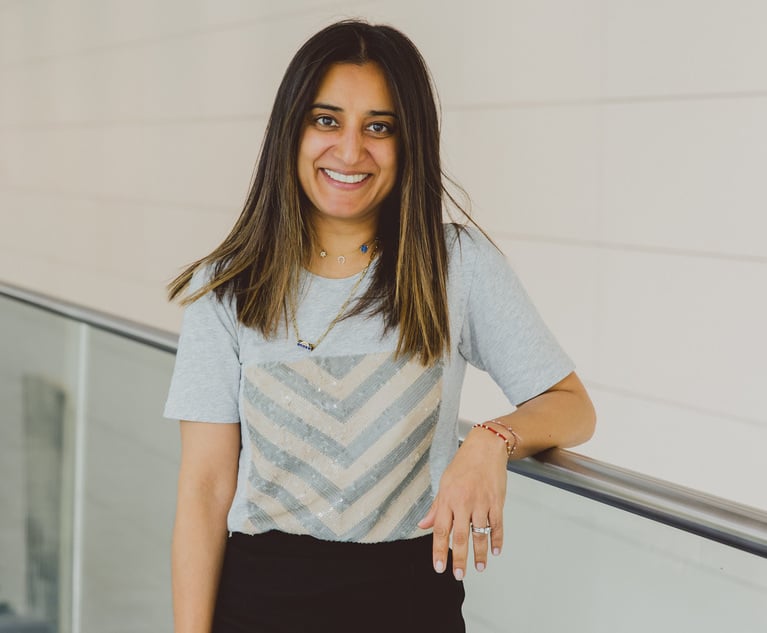Susskind urges in-house lawyers to stop 'tolerating' old-fashioned law firms
Legal tech futurist heralds "open source concept of legal content" at Corporate Legal Operations Consortium's inaugural London conference
January 24, 2018 at 08:12 AM
3 minute read
Professor Richard Susskind has called on in-house lawyers to revolutionise their approach to legal services, saying they have "tolerated" old-fashioned law firm methods for too long.
He was speaking at the Corporate Legal Operations Consortium's (CLOC) inaugural London conference, which took place yesterday (23 January) on the back of the organisation's European launch last year.
CLOC, which was founded in the US in 2010, describes itself as the 'go-to' organisation for information about legal operations and networking opportunities for specialists in this line of work.
More than 180 legal operations professionals, GCs, lawyers and technology providers attended the London event, which focused on the rise of legal operations professionals and how they can drive change in the legal sector.
Susskind – who opened the conference alongside CLOC chief executive Connie Brenton – highlighted the rise of technology and the role of legal operations in breaking down traditional ways of working.
"In-house lawyers have tolerated law firms' old-fashioned ways of working. Clients don't want just professionals; they want the outcomes they bring, and different ways of delivering them," he said. "CLOC is a collective voice, and in-house lawyers can reconceptualise how legal services are delivered. The future of legal services is within the grasp of CLOC."
Commenting on driving through change and cost savings, Susskind said: "Even before the economic downturn, GCs were under pressure to reduce legal spend and headcount. There is now less resource and more demand. We can either be more efficient and cut costs that way, or use a collaboration strategy and share the costs.
"We are moving towards an open source concept of legal content. There are growing groups of in-house functions coming together to share techniques and content. We need to be more sophisticated about sharing."
Susskind criticised the view held by some that artificial intelligence (AI) has already significantly impacted the legal sector, arguing that the most important changes are still to come. "AI is now a verb – I hear people saying: 'We can AI that'. People are just talking almost randomly about these technologies.
"The short-term predictions overstate the impact. However, in the long term, by the late 2020s or 2030s, it is hard to avoid the the conclusion that this isn't going to replace fundamental parts of legal services."
Other speakers at the event included legal operations heads from Google, Facebook, BT, Vodafone and Gap, as well as Barclays relationship management head Chris Grant and Cisco deputy general counsel Steve Harmon.
Sessions looked at subjects including escalating legal operations from the ground up, how to challenge traditional operating models in legal departments, and a discussion on effective legal panel management.
CLOC president Brenton, chief of staff and senior director of legal operations at US data management company Netapp, commented: "The role of the GC has changed – the industry is moving at a quick pace and we can barely keep up with the changes. If you don't have an operations role, it is going to be irresponsible. You can't run a legal department without operational efficiency."
This content has been archived. It is available through our partners, LexisNexis® and Bloomberg Law.
To view this content, please continue to their sites.
Not a Lexis Subscriber?
Subscribe Now
Not a Bloomberg Law Subscriber?
Subscribe Now
NOT FOR REPRINT
© 2025 ALM Global, LLC, All Rights Reserved. Request academic re-use from www.copyright.com. All other uses, submit a request to [email protected]. For more information visit Asset & Logo Licensing.
You Might Like
View All
Compliance With the EU's AI Act Lags Behind as First Provisions Take Effect

DeepSeek and the AI Revolution: Why One Legal Tech Expert Is Hitting Pause
4 minute read
Eight Years On, A&O Shearman’s Fuse Legal Tech Incubator is Still Evolving
4 minute readTrending Stories
Who Got The Work
J. Brugh Lower of Gibbons has entered an appearance for industrial equipment supplier Devco Corporation in a pending trademark infringement lawsuit. The suit, accusing the defendant of selling knock-off Graco products, was filed Dec. 18 in New Jersey District Court by Rivkin Radler on behalf of Graco Inc. and Graco Minnesota. The case, assigned to U.S. District Judge Zahid N. Quraishi, is 3:24-cv-11294, Graco Inc. et al v. Devco Corporation.
Who Got The Work
Rebecca Maller-Stein and Kent A. Yalowitz of Arnold & Porter Kaye Scholer have entered their appearances for Hanaco Venture Capital and its executives, Lior Prosor and David Frankel, in a pending securities lawsuit. The action, filed on Dec. 24 in New York Southern District Court by Zell, Aron & Co. on behalf of Goldeneye Advisors, accuses the defendants of negligently and fraudulently managing the plaintiff's $1 million investment. The case, assigned to U.S. District Judge Vernon S. Broderick, is 1:24-cv-09918, Goldeneye Advisors, LLC v. Hanaco Venture Capital, Ltd. et al.
Who Got The Work
Attorneys from A&O Shearman has stepped in as defense counsel for Toronto-Dominion Bank and other defendants in a pending securities class action. The suit, filed Dec. 11 in New York Southern District Court by Bleichmar Fonti & Auld, accuses the defendants of concealing the bank's 'pervasive' deficiencies in regards to its compliance with the Bank Secrecy Act and the quality of its anti-money laundering controls. The case, assigned to U.S. District Judge Arun Subramanian, is 1:24-cv-09445, Gonzalez v. The Toronto-Dominion Bank et al.
Who Got The Work
Crown Castle International, a Pennsylvania company providing shared communications infrastructure, has turned to Luke D. Wolf of Gordon Rees Scully Mansukhani to fend off a pending breach-of-contract lawsuit. The court action, filed Nov. 25 in Michigan Eastern District Court by Hooper Hathaway PC on behalf of The Town Residences LLC, accuses Crown Castle of failing to transfer approximately $30,000 in utility payments from T-Mobile in breach of a roof-top lease and assignment agreement. The case, assigned to U.S. District Judge Susan K. Declercq, is 2:24-cv-13131, The Town Residences LLC v. T-Mobile US, Inc. et al.
Who Got The Work
Wilfred P. Coronato and Daniel M. Schwartz of McCarter & English have stepped in as defense counsel to Electrolux Home Products Inc. in a pending product liability lawsuit. The court action, filed Nov. 26 in New York Eastern District Court by Poulos Lopiccolo PC and Nagel Rice LLP on behalf of David Stern, alleges that the defendant's refrigerators’ drawers and shelving repeatedly break and fall apart within months after purchase. The case, assigned to U.S. District Judge Joan M. Azrack, is 2:24-cv-08204, Stern v. Electrolux Home Products, Inc.
Featured Firms
Law Offices of Gary Martin Hays & Associates, P.C.
(470) 294-1674
Law Offices of Mark E. Salomone
(857) 444-6468
Smith & Hassler
(713) 739-1250










